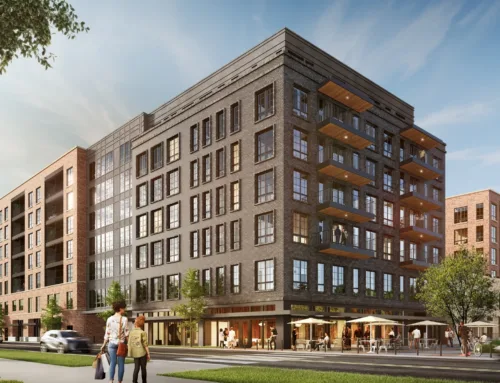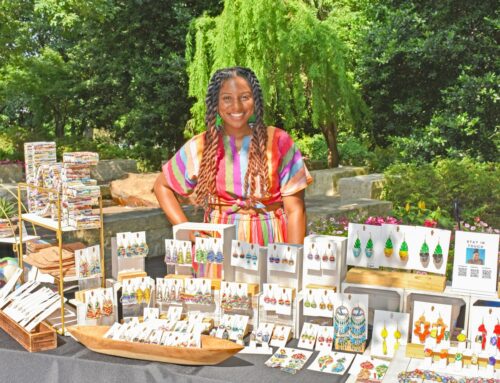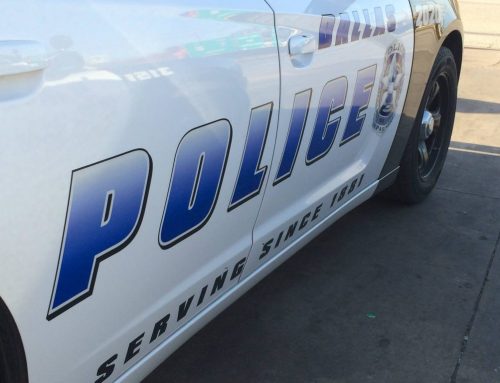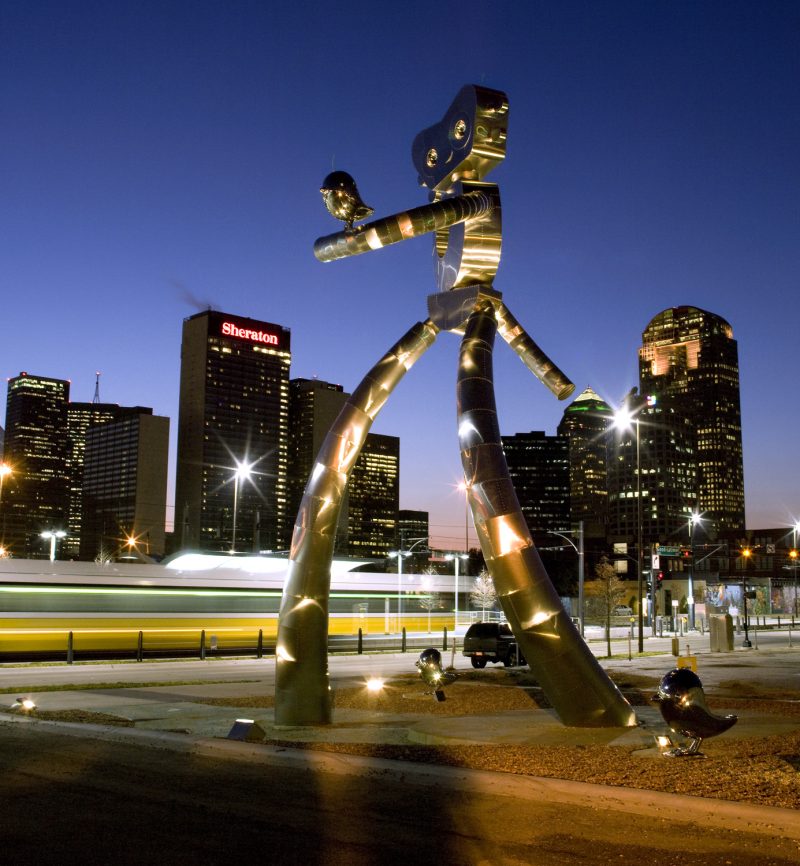
After months of research, the Deep Ellum Noise Task Force released its findings and recommendations about how to regulate noise levels in our city’s historic entertainment district.
The group, which was assembled last year by District 2 City Council member Jesse Moreno, included members of the Dallas Police Department, the Department of Code Compliance, the Deep Ellum Foundation, 24Hour Dallas and the Deep Ellum Community Association; residents; and representatives from bars and other venues in the neighborhood.
Code Compliance was strictly enforcing this rule: People and businesses violated the ordinance if a noise “is offensive to the ordinary sensibilities of the inhabitants of the city.”
As bars, venues and other late-night establishments were beginning to open after months of closure because of the pandemic, complaints ramped up. The task force found that 64% of business and venue operator survey respondents had been visited by police of Code Compliance officers in relation to a noise complaint, and of those, 85% had been issued tickets or citations.
New apartment offerings in Deep Ellum increased by more than 75% during 2018-2020, according to the task force’s report.
In it, the group lays out several recommendations to meet the needs of residents and businesses.
The first is to create an overlay district to allow different levels of noise in different areas, separate from the levels allowed by the City of Dallas. Specifications are below. The process of measuring decibel levels should be consistent and accurate, and the report recommends taking the reading from at least 45 feet from a business and using an average reading over an eight-minute period.
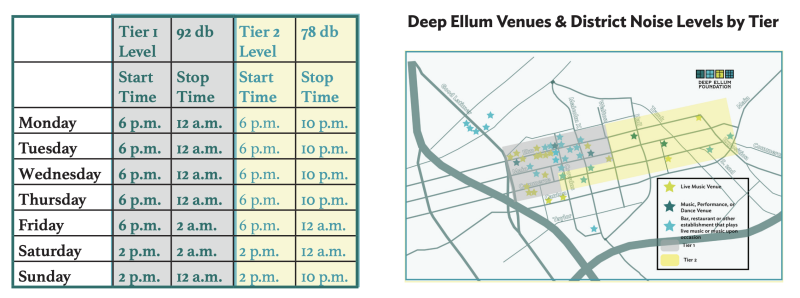
Courtesy of Deep Ellum Noise Task Force.
According to the report, almost 25% of music venue operators “agreed setting a Deep Ellum-specific decibel level was the most important change of policy or practice the City of Dallas could undertake to enable continued business operation with live and amplified music while maintaining neighborhood quality of life.”
Another recommendation is to prohibit venue operators from placing speakers on or over the public right-of-way, such as sidewalks and streets. They also recommend keeping speakers that face the public right-of-way more than five feet from the property line.
The group also suggested that incoming residents should be educated on the higher levels of noise and nightlife activity in the neighborhood, and they wrote in the report that they would create a flier to give to multifamily residential developments in the district. That flier will include information about new local regulations and whom to contact when noise problems persist.
The most popular solution identified was to develop cooperation among neighboring businesses to address noise complaints.
During the time the task force was working, Dallas was named a “music-friendly community” and formed an office/liaison position to create monthly reports about the progress of the local music industry’s development programs.
The final recommendation is meant to help musicians by installing new street signs designating loading/parking zones for them. Many artists travel to performances with their own speakers and other equipment, and the layout of Deep Ellum makes it hard to transport it all.


